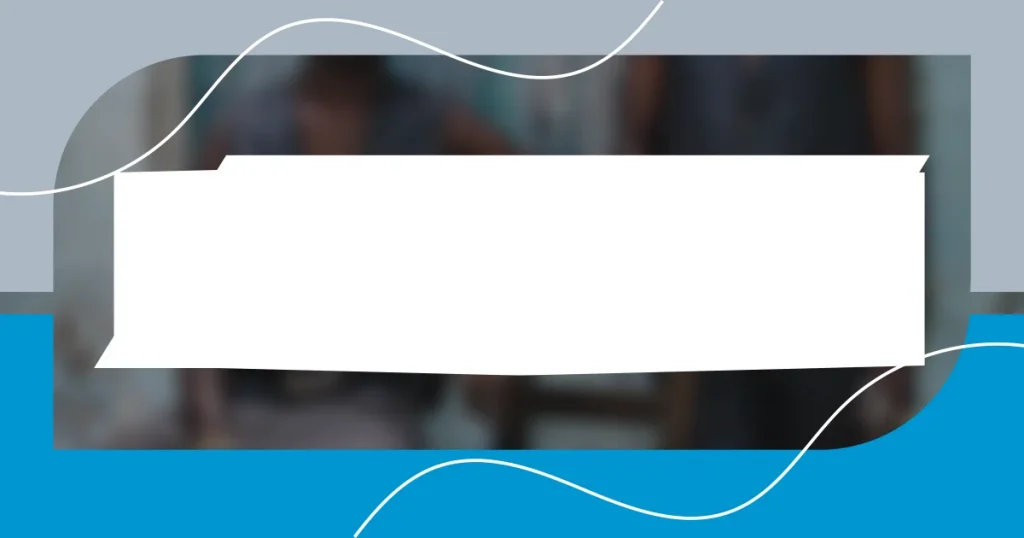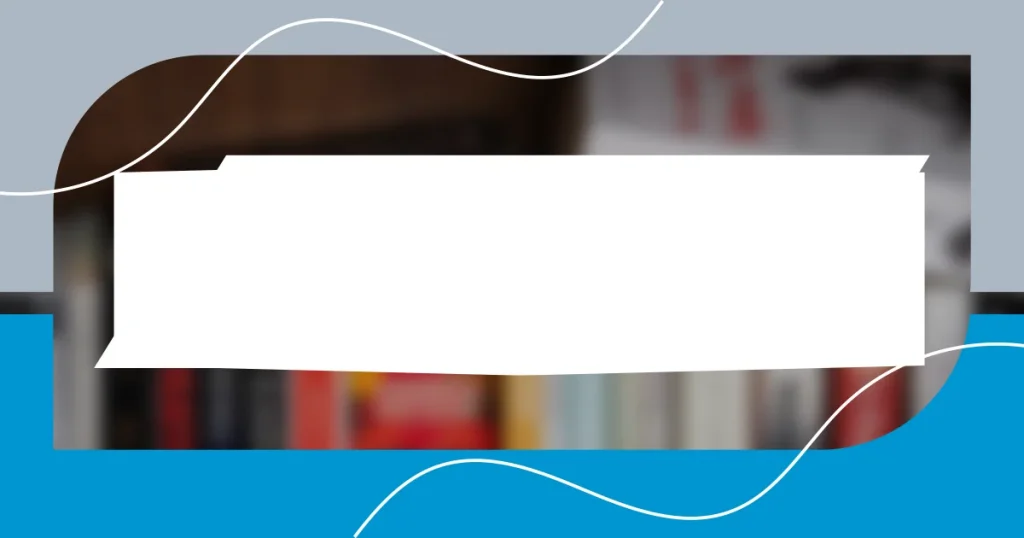Key takeaways:
- Award panels blend expertise and subjectivity, making it crucial for members to engage with integrity and fairness in their evaluations.
- Crafting compelling proposals through storytelling, clarity, and conversational framing can significantly enhance connection with judges.
- Building genuine relationships with judges and leveraging their feedback fosters continuous growth and enhances future submissions.
Understanding Award Panels
Award panels often serve as the gatekeepers to recognition, embodying a blend of expertise, passion, and sometimes, conflicting opinions. I remember my first experience sitting on an award panel; it was exhilarating yet nerve-wracking. What struck me was the profound responsibility we had to select individuals whose work could inspire others.
Each member brings unique perspectives based on their experiences, which can lead to rich discussions. Have you ever wondered how subjective preferences can color the evaluation process? I’ve found that these varied viewpoints can sometimes spark heated debates, making it all the more essential to address each entry with open-mindedness and integrity.
As I engaged deeper with the discussions, I realized that the criteria for judging aren’t just black and white; they evolve with the industry. Reflecting on this, I often ask myself: how can we ensure fairness in such a subjective environment? Recognizing the human element in each submission can bridge the gap between differing opinions and lead to more equitable outcomes.
Preparing for Engagement
Preparing for engagement with award panels is a multifaceted process that requires both reflection and strategy. Drawing from my own experiences, I’ve learned that understanding the panel’s dynamics is crucial. Early on, I realized that each preparation step is just as important as the engagement itself. For instance, I often take time to review previous award winners and their submissions to gauge the qualities that resonate with the panel. This insight helps me align my approach and expectations.
Here are some key steps I recommend for effective preparation:
- Research the award’s history and criteria to understand what the panel values.
- Reflect on your own motivations and experiences that align with the award theme.
- Prepare specific examples that highlight your work’s impact and significance.
- Practice articulating your message clearly; confidence in delivery is key.
- Engage with previous panelists or award winners to gain insights into their experiences.
By thoughtfully navigating this preparation phase, I’ve found I’m able to engage more meaningfully and authentically when the time arrives.
Crafting Compelling Proposals
When I think about crafting compelling proposals, I find that storytelling plays a vital role. A strong narrative can captivate the panel and create an emotional connection. For instance, I recall submitting a proposal where my personal journey intertwined with the project. Sharing my challenges and triumphs made it relatable, and I could sense that the panel resonated with my sincerity. They’re not just looking for statistics or achievements; they appreciate the human element in the story.
Additionally, clarity and conciseness are paramount. Through my experience, I’ve learned that highlighting key points without overwhelming details is essential. One time, I received feedback on a proposal that had great ideas but was bogged down by unnecessary jargon. Simplifying my language allowed my passion and purpose to shine through, making it easier for the panel to grasp my vision. Keeping it straightforward can often be more persuasive than a dense, complex argument.
I often compare my proposals to crafting a great pitch. Just like a good conversation, it should engage and flow naturally. This idea of connection is invaluable. Thinking back, one of my best submissions came after I mapped out my main points to ensure they aligned seamlessly with the award criteria. When I reframed my input as not just an application but a dialogue with the panel, it transformed my approach.
| Aspect | Tips |
|---|---|
| Storytelling | Use personal narratives to make proposals relatable. |
| Clarity | Keep language simple to highlight key points. |
| Engagement | Frame proposals as a conversation rather than a formal application. |
Building Relationships with Judges
Building relationships with judges requires a genuine approach. I remember my first encounter with a panel for an industry award; I was nervous but excited. I took the opportunity to ask the judges about their experiences — this simple act of curiosity not only helped ease my nerves but also opened up a more personal connection. I realized that showing interest in their perspectives can foster a rapport that goes beyond the formalities of the competition.
One key aspect I’ve found beneficial is consistent engagement with judges throughout the year, not just during the award cycle. Whether it’s commenting on their articles, participating in industry events, or sending a thoughtful note about their recent accomplishments, these small gestures build trust and familiarity. It’s like nurturing a garden; regular interaction nurtures the relationship, making it flourish over time. How many opportunities have I missed by limiting my engagement to application periods? Too many, I now realize.
Another effective strategy is to approach judges with shared interests or values. During one awards event, I discovered a judge’s passion for sustainability, much like my own. I eagerly shared insights from my work in that area, and our discussion sparked a lively exchange. This shared enthusiasm made our interaction memorable, increasing the chances of my work being appreciated on a personal level. When judges can connect with you beyond your project, that’s when the real magic happens.
Navigating Panel Discussions
Navigating panel discussions can be a bit daunting, but I’ve discovered some techniques that really smooth the process. One memorable panel I attended had a mix of personalities; by being attentive and adapting my approach, I was able to connect with different judges based on their reactions and interests. It’s about reading the room—does someone seem more analytical, while another appears more creative? Tailoring my responses on the fly helped foster a dialogue that felt engaging for everyone involved.
I can’t stress enough how vital body language is in these discussions. During one panel, I made a conscious effort to maintain eye contact and lean slightly forward when speaking. This not only showed my enthusiasm but also invited the panel to engage more deeply with my points. I personally felt a shift in the energy of the room; it almost felt like we were having a collaborative brainstorming session rather than a formal evaluation.
It’s also crucial to prepare for questions that might throw you off guard. I recall a panelist asking me to clarify a seemingly obscure detail from my project. Instead of feeling flustered, I paused, took a breath, and addressed the question with honesty. Admitting when you don’t have all the answers can be surprisingly effective. It shows authenticity and often invites a more genuine follow-up discussion. Isn’t it better to engage in an open, honest conversation than to feign perfection?
Leveraging Feedback for Growth
Leveraging feedback for growth is something I’ve come to cherish during my award experiences. After receiving critique from a panel once, I felt a mix of disappointment and determination. Instead of letting it weigh me down, I delved into the comments with a growth mindset. I took the time to clearly understand the feedback and implemented it into my next project. That transformation not only improved my submission but also made me realize how valuable constructive criticism can be.
One memorable piece of advice I received was about enhancing the clarity of my message. After I presented a project, a judge noted that while my ideas were innovative, they were somewhat buried in jargon. This constructive feedback stung initially, but I started to view it as a roadmap for improvement. I utilized their suggestions in future projects, simplifying my language and focusing on the core message. Have you ever thought a comment was disheartening only to find it leads you to a breakthrough?
I’ve also learned the importance of following up after competitions. After one particularly eye-opening panel, I sent a thank-you email to the judges, expressing gratitude for their insights. To my surprise, some responded with further thoughts and encouragement. This interaction not only solidified my relationship with them but deepened my understanding of the industry standards. Engaging with feedback in this way helps cultivate a culture of continuous improvement, and I often wonder—how many valuable relationships might be formed through just a simple follow-up?
Reflecting on the Experience
Reflecting on my experiences with award panels brings a surge of mixed emotions. Each interaction has been a learning opportunity, often leaving me contemplating what transpired long after the discussions ended. For instance, after one particularly intense session, I found myself replaying the feedback in my mind—wondering how I could integrate it into my future work. Have you ever had a moment where you realized the impact of something seemingly small? It’s those insights that shape our journeys.
One time, I vividly remember a panelist’s unexpected compliment that shifted my perspective. As I left the room, I was astonished by how a few encouraging words could reignite my passion and validate my hard work. Reflecting on that moment, I realized the profound effect we can have on one another through our words. Isn’t it fascinating how a single interaction can influence our self-belief and motivation?
What strikes me most during these reflections is the value of vulnerability. There was a panel where I openly shared my struggles in a specific project, and the connection that formed was palpable. That raw honesty sparked a deeper conversation, enhancing my understanding of both my work and the perspectives of the judges. I often wonder—how often do we underestimate the power of sharing our authentic selves? It’s this relatability that can turn a formal evaluation into a heartfelt exchange.















